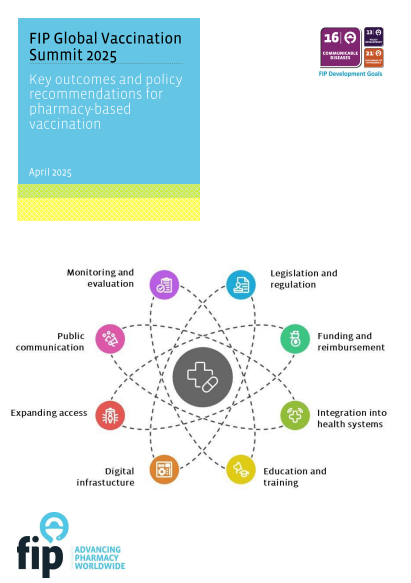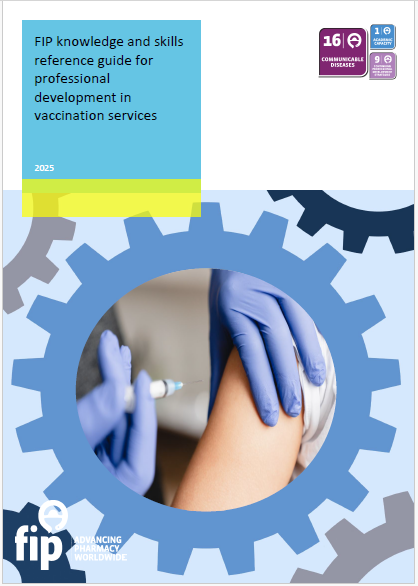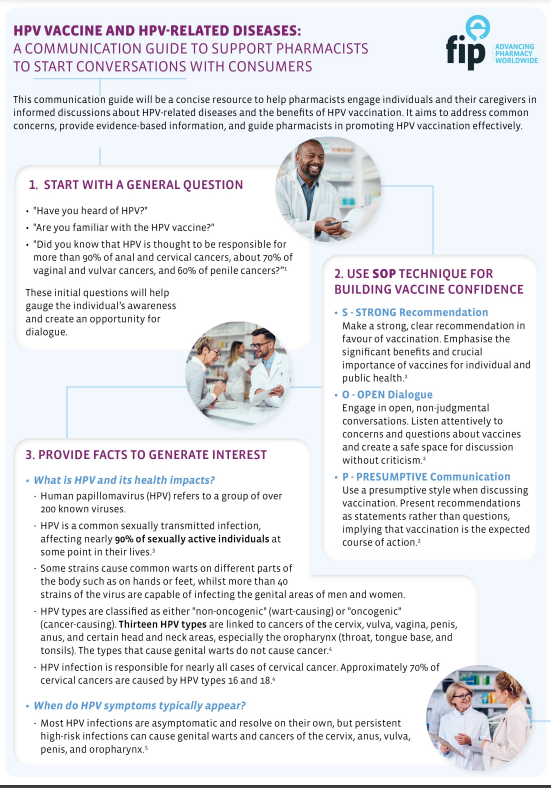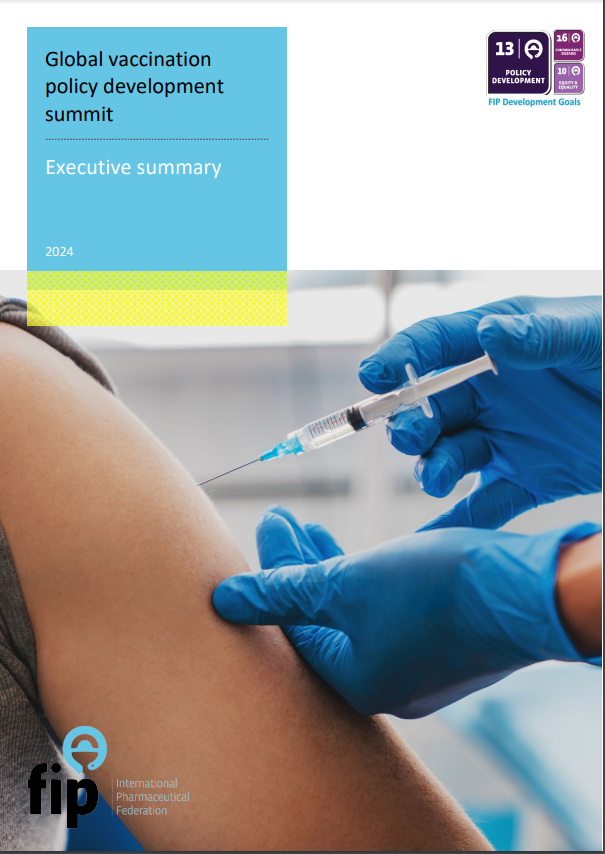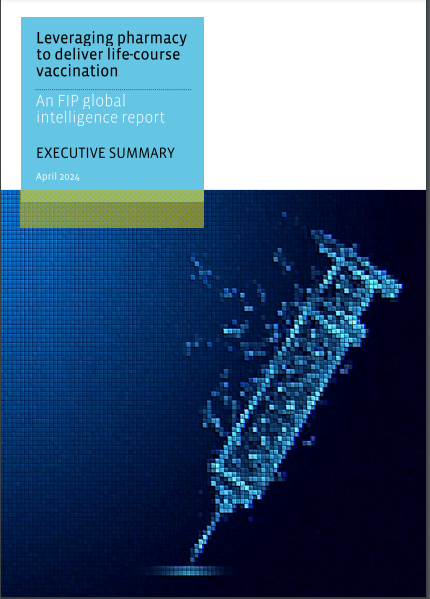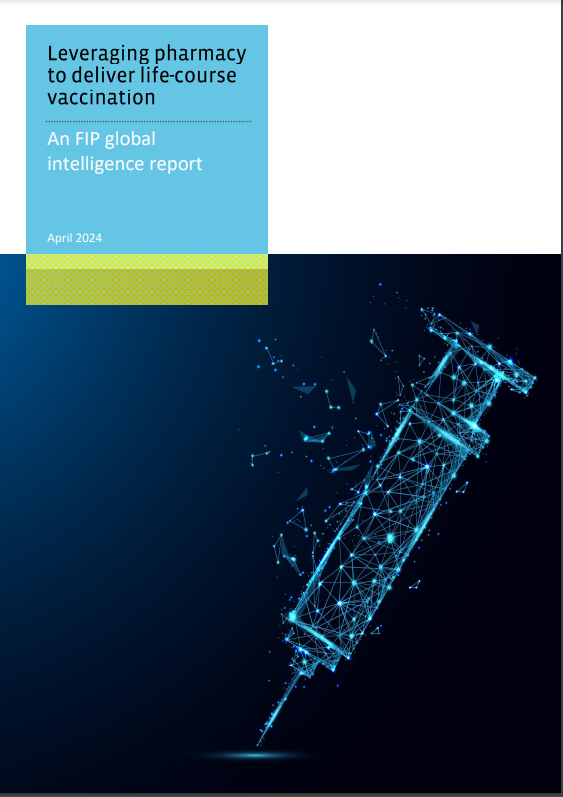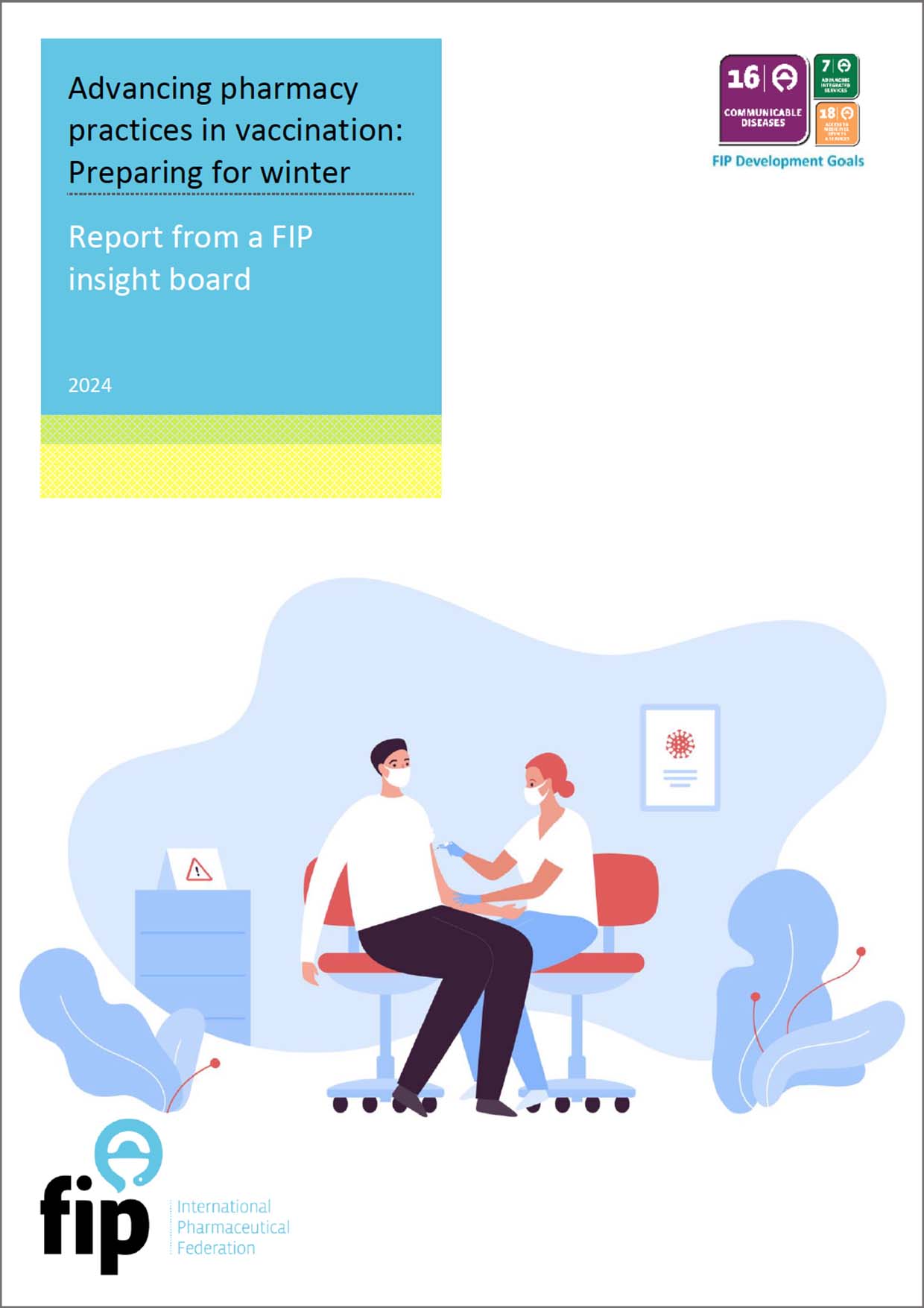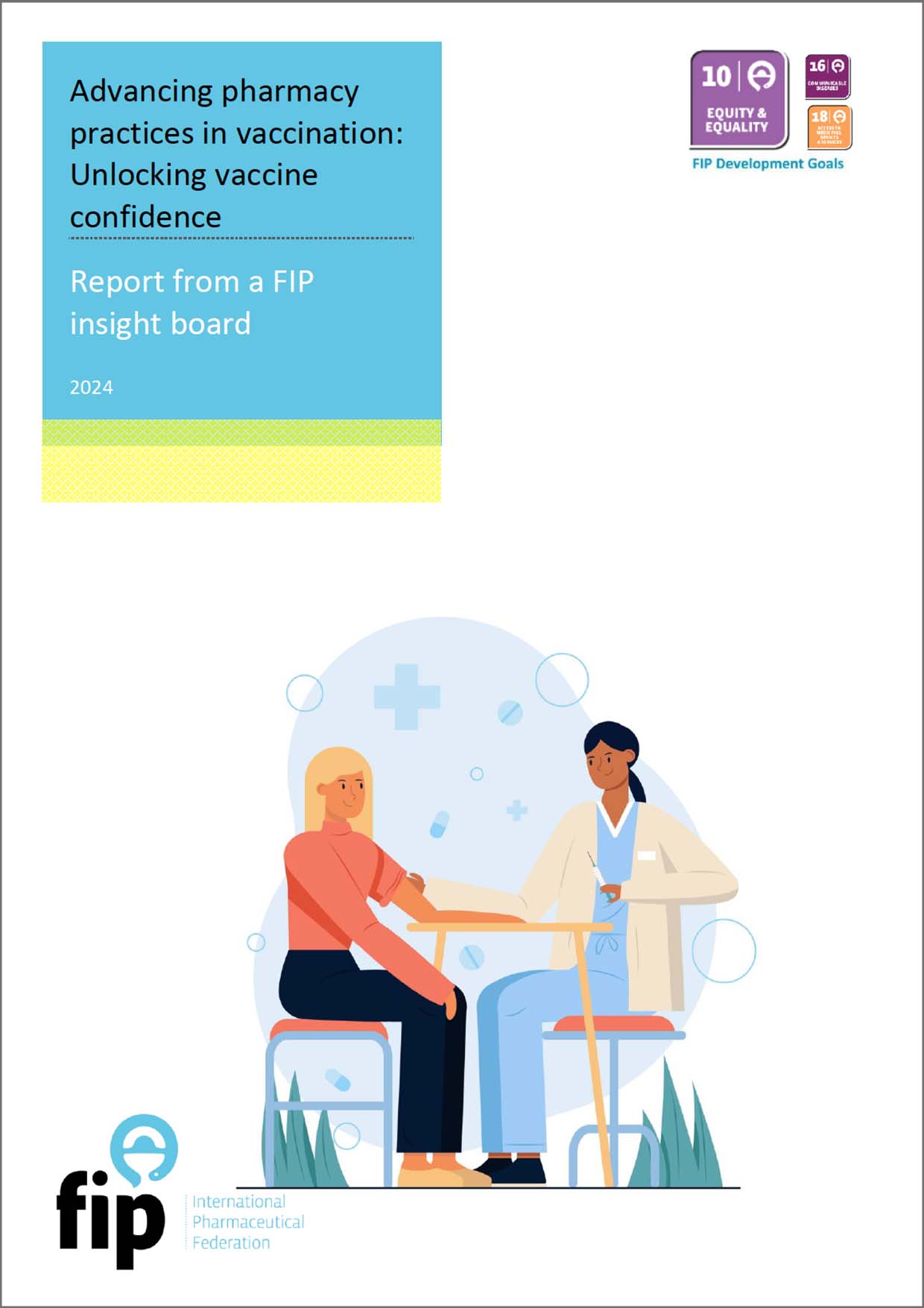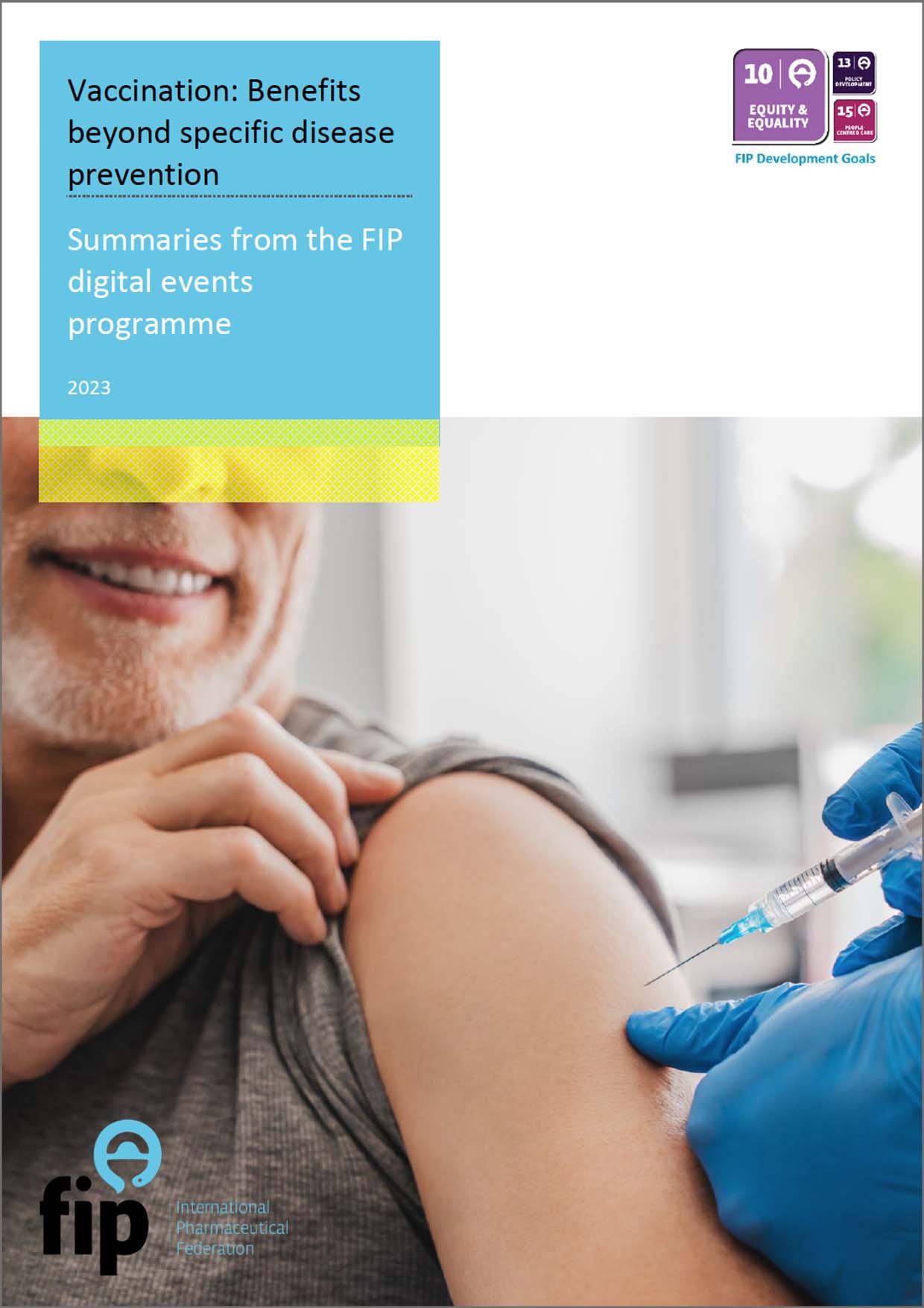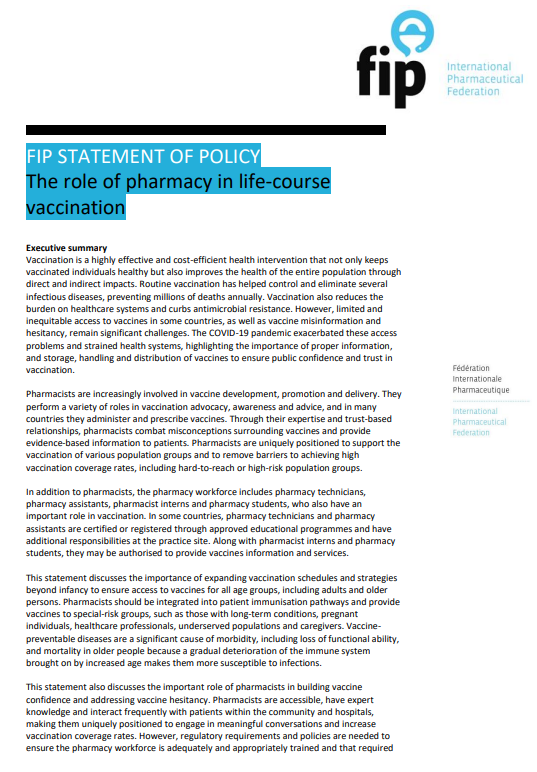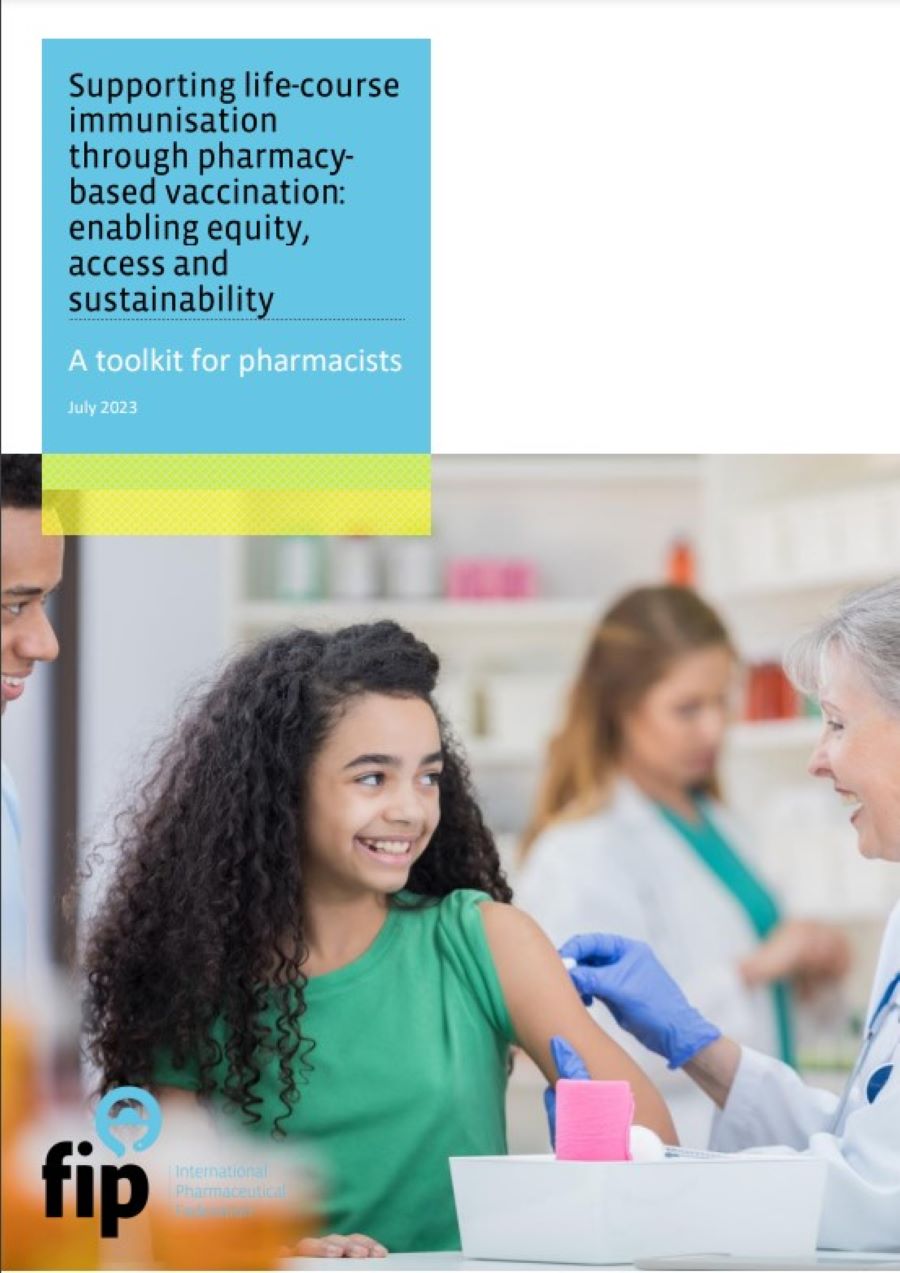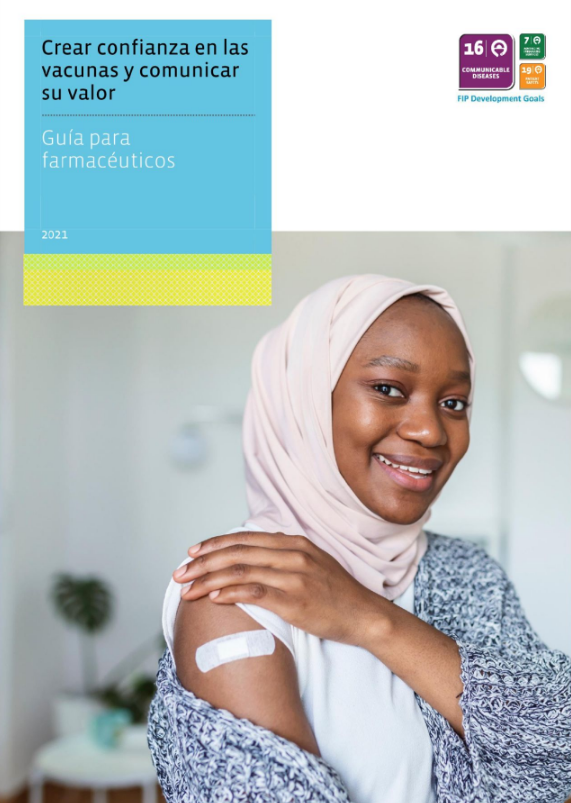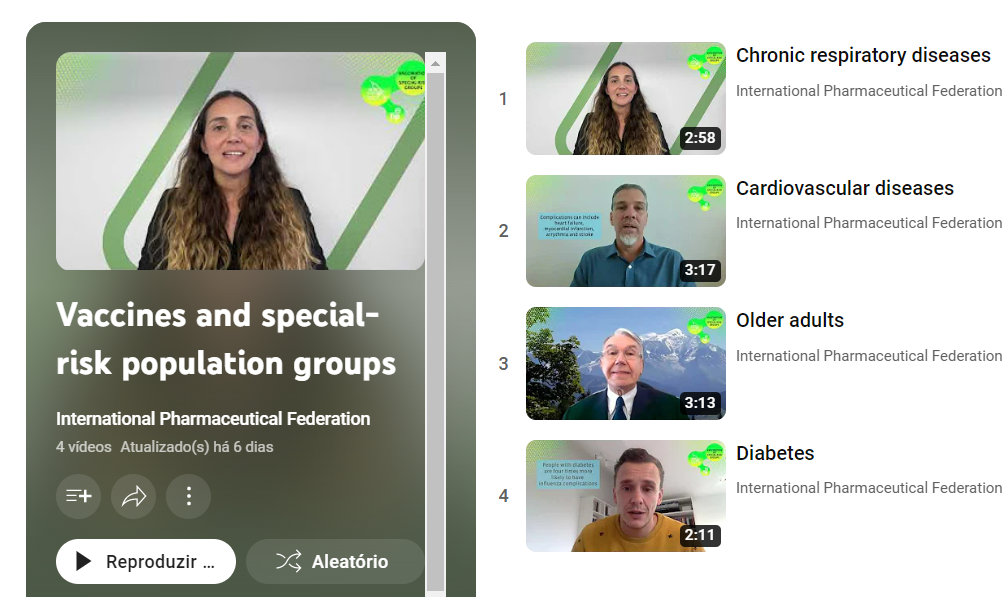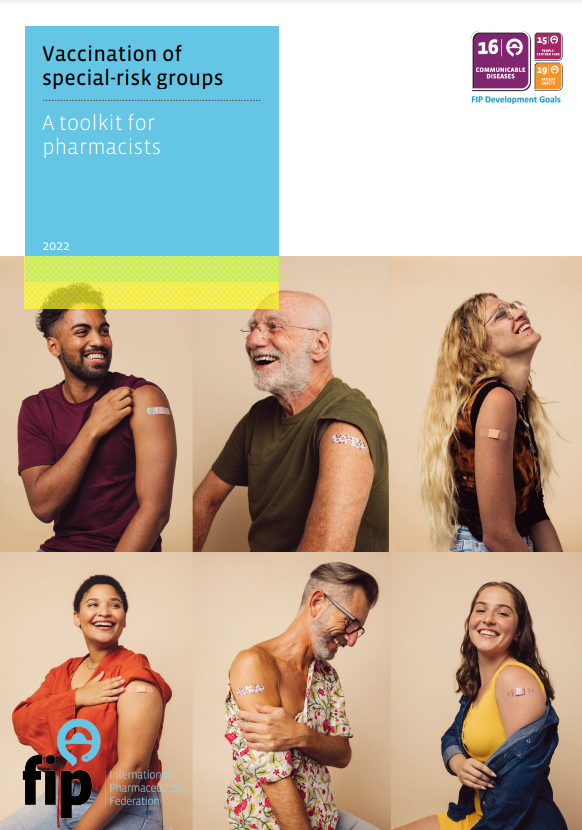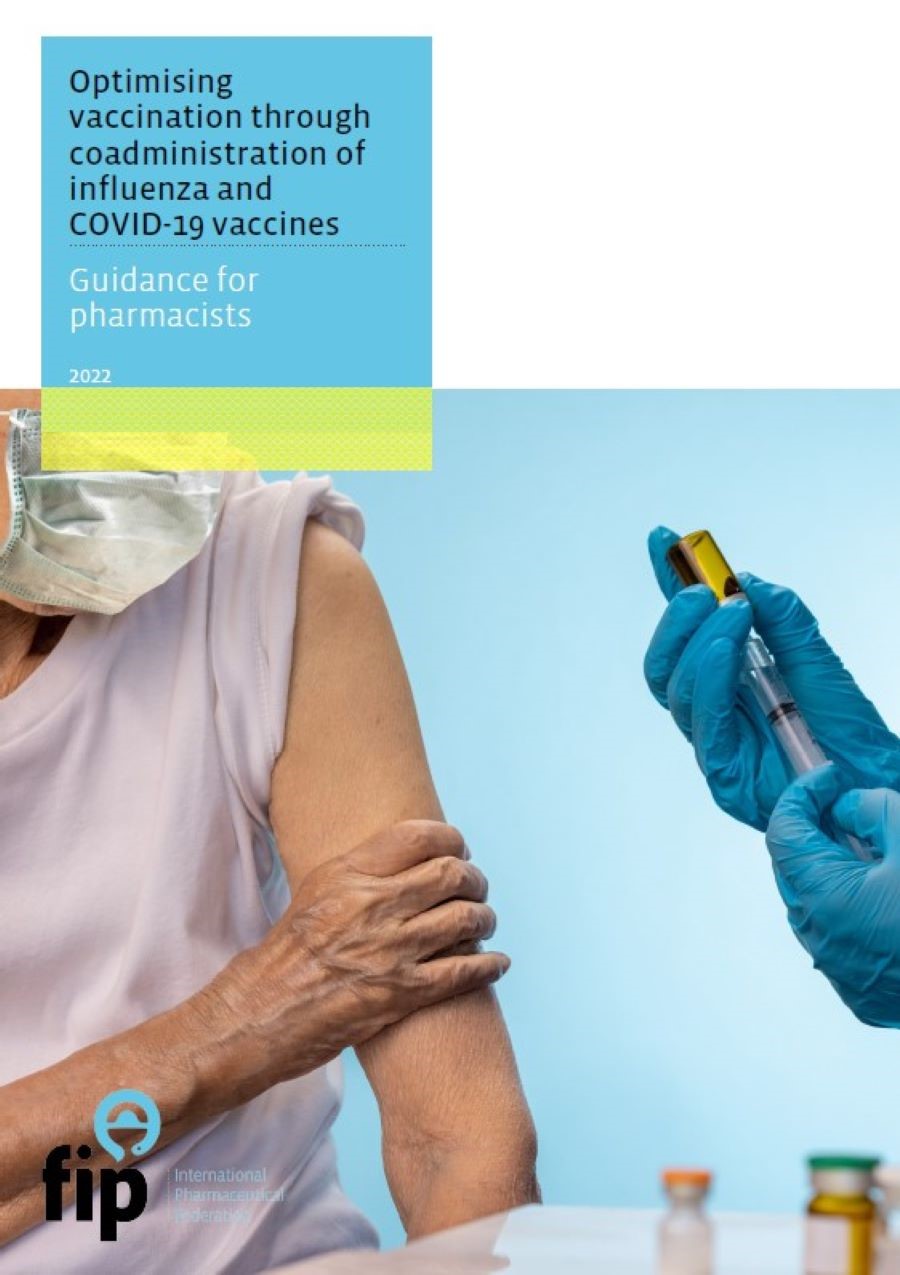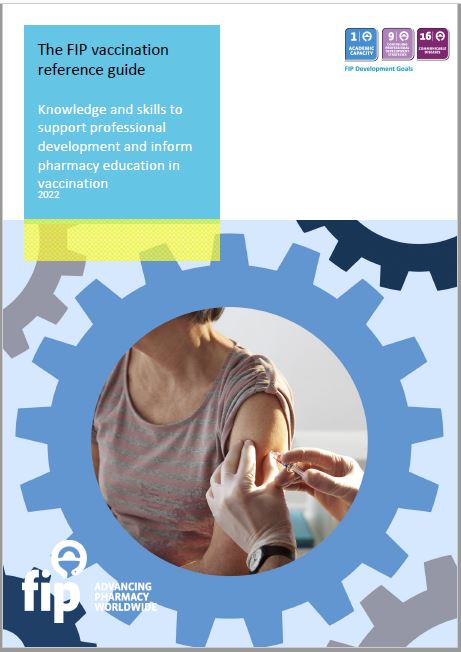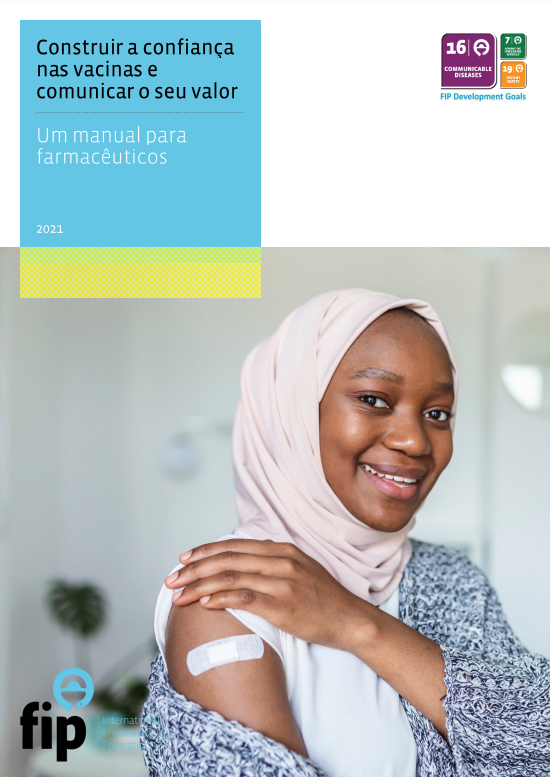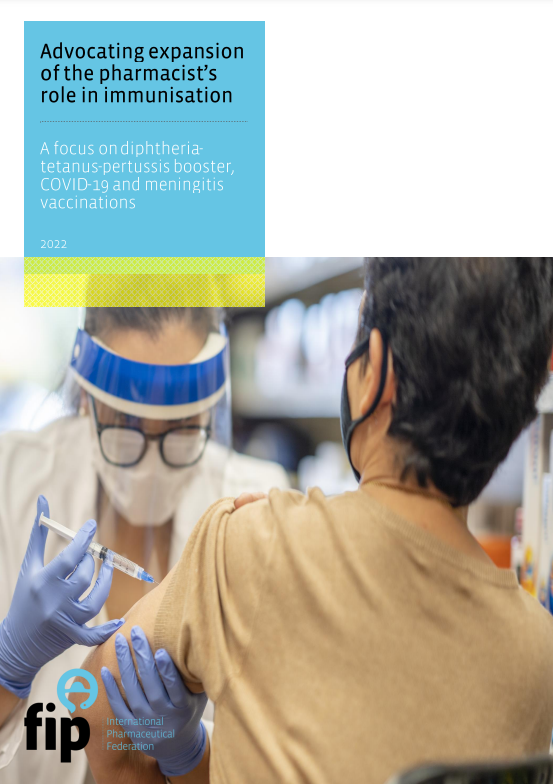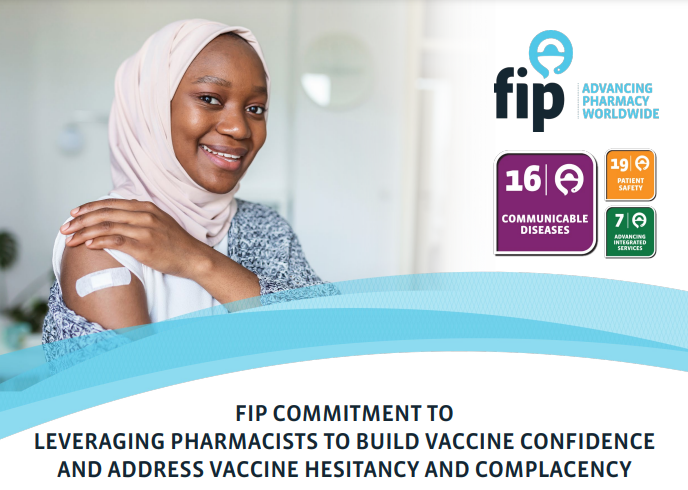FIP’s publications in this area range from the FIP-WHO Good Pharmacy Practice guidelines (2011) to advocacy tools, global data, guidelines and practice support tools. They include a members-only advocacy toolkit to support member organisations’ advocacy for the implementation of pharmacy-based vaccination, a collection of evidence and guidelines for the development of vaccination services, survey reports on the evolving roles of pharmacy in vaccination, and a regulatory self-evaluation assessment tool for advancing pharmacy services in this area.
Publications are presented in chronological order, from more recent to older. Please scroll down inside the grey area or using the scroll bar on its side to find more FIP publications.

